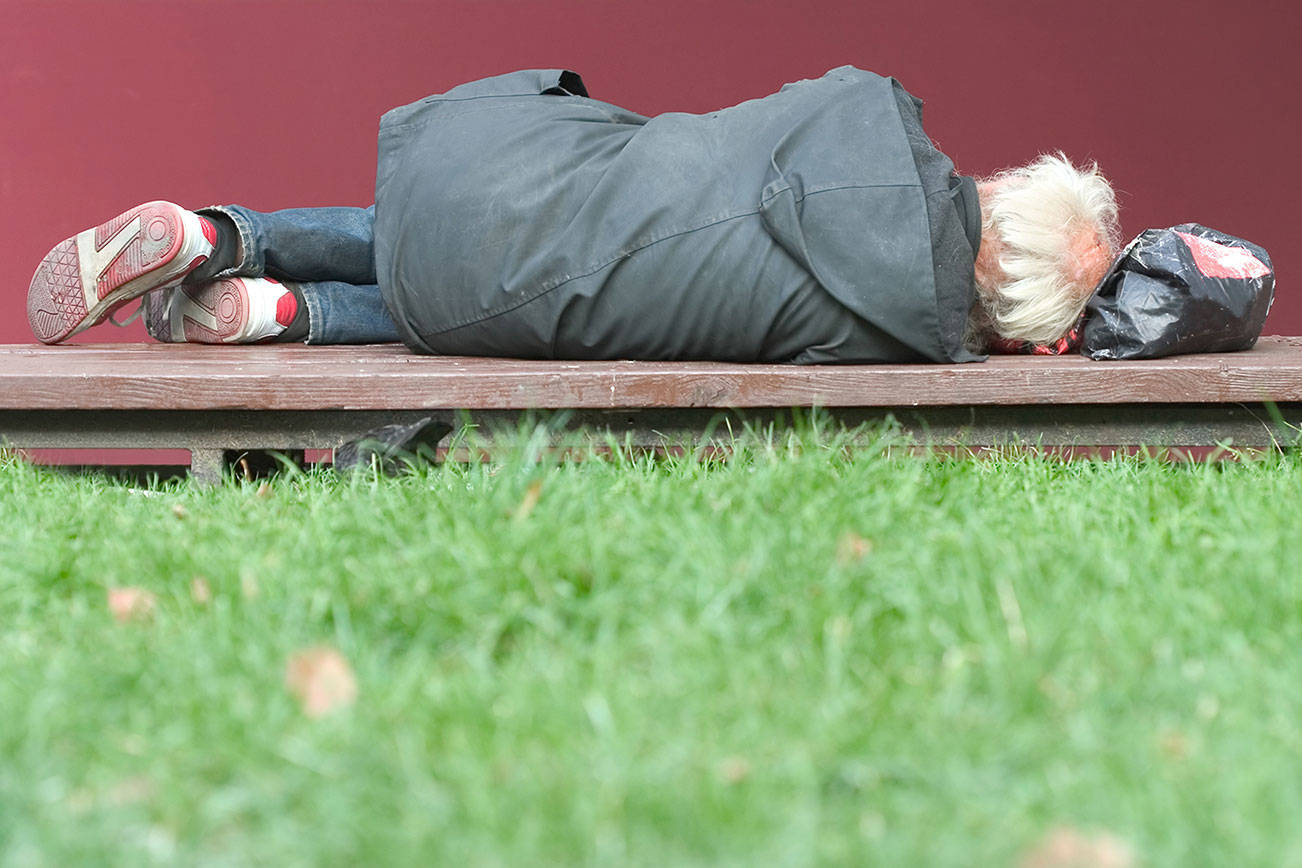The core of Auburn’s philosophy toward the homeless, city officials say, is that instead of handing them blankets and food, the city should point them to services that will help them out of homelessness — services like drug and alcohol treatment, employment assistance and a warm bed for the night.
That’s the carrot.
But there are also talks about ratcheting up penalties from civil to criminal misdemeanors on those who insist on camping in city parks and refuse the helping hand.
And that’s the stick.
At a work session Aug. 24, Auburn City Councilman Chris Stearns objected to the tough parts of the proposed ordinance, which seemed to him counterproductive to helping.
“I’ve wracked my brain, and I just cannot find or think of anything where imprisoning or jailing a homeless person is going to do anything to make that person better off, to make them safer or make them more likely to receive treatment, and I can’t find any evidence that it does,” Stearns said.
Burdening them with a criminal record, he added, would actually make it harder for homeless people to find jobs, to find housing, and to become more stable and self-sufficient.
Stearns addressed his comments to the second draft of the ordinance that the city council had first eyed on July 27, and on that occasion had asked for revisions and another look.
Here’s what the suggested revisions would do:
• Align the city’s camping ordinance with the 9th Circuit Court’s Boise decision, which ruled that the city of Boise, Idaho, could not kick people off of public property if it could not provide them a place to go.•Declare it unlawful to camp on city-owned property without a permit or unless the parks director allows it on park property.
•Change the penalty for camping within a designated park from a ticketed offense to a misdemeanor.
•Condition enforcement of camping rules on the availability of free, overnight shelter. This provision includes the cost of transportation in the event transportation to the shelter is necessary.
•Add recitals in the cover ordinance intended to better clarify the legislative intent. Of particular note is the council’s “ongoing desire to ensure that the ordinance is implemented in a manner that leads with services and assistance to the homeless community and not with punitive actions and penalties.”
Version two still holds out possible penalties and even jail time to anyone who sets up a in city parks and on public property where that is not allowed.
Kent Hay, outreach program administrator for the City of Auburn, said penalties will always be the last resort, reserved for those who stubbornly refuse the hand.
“If people decide they don’t want the help, that doesn’t mean they get a pass,” Hay said. “If they decide not to participate, we want to make it uncomfortable enough for them to come to the table so we can get them out of their situations.”
In his nine months on the homeless beat for the city, Hay said, he has not arrested a single person.
The proposed ordinance likewise troubled Stearns in terms of basic human rights, he said, such as the right to shelter, the right to sleep, the right to rest, the right to privacy. He also argued against a section that specified people should be able to see all the way through the tents at all times.
“People also have a right to privacy,” Stearns said. “There is an actual right of privacy, but in layman’s terms, people deserve a right to sleep, to change and to not have people look in on them. And that applies even if you cannot afford to live in a house or an apartment. If you live in a tent, I don’t think you have to give away those same rights that a regularly-housed person has.”
For those and other reasons, Stearns said, he could not support the tent ban in city parks at this time.
“Having four sides and a roof and a floor seems really important. I believe everyone deserves to protect themselves from the elements, especially as we are entering fall and winter. And there is going to be wind, rain and snow,” Stearns said.
He suggested removing the criminal penalties, and replacing them with 3-tiered civil infractions — an idea, he said he borrowed from the city of Olympia. For example, he said, the first offense could net a $50 penalty, the second $125, and the third as much as $250, the maximum under state law.
Stearns said the city should make its intentions clear in the ordinance’s preamble. The law doesn’t require that, he said, but it is important.
“I believe the burden is on us to put our money where our mouth is, so I would want to see it actually, statutorily-imposed on the city to first offer housing or mental health or drug addiction services to the homeless before any enforcement action,” Stearns said.
The city already does that, Hay responded.
“We want them to know they can’t just stay here homeless, so I always offer them services first. That is our approach in the city of Auburn every time I make contact — to get them out into shelters so we can continue to work on their situations,” Hay said.
Community Development Director Jeff Tate said the city wouldn’t arrest any offenders if there were, in fact, no shelter beds available on the day in question within a 40-mile radius of Auburn. And transportation will not cost the homeless person.


